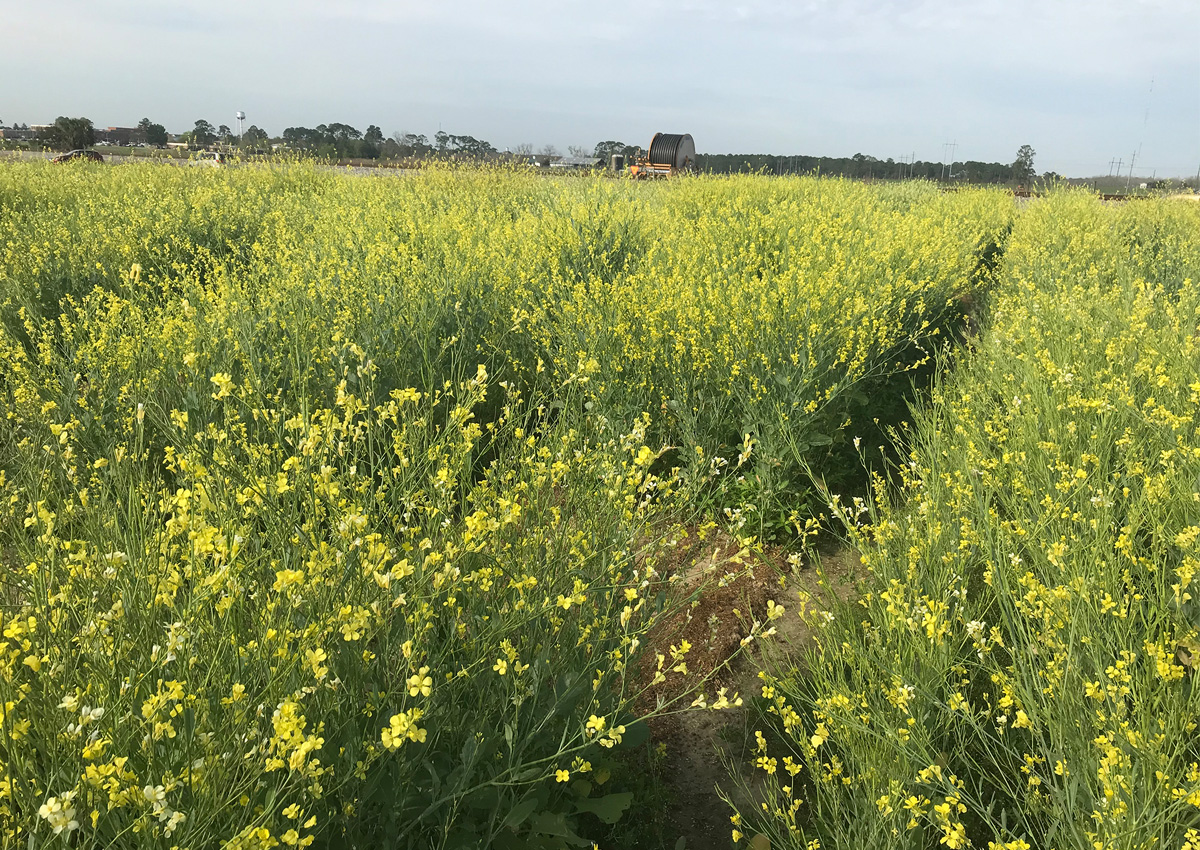
University of Georgia Reports Plant-based Jet Fuel could Reduce Emissions by 68%
October 27, 2021| |
Research from the University of Georgia led by scientist Puneet Dwivedi has found that replacing petroleum-based aviation fuel with sustainable fuel from a type of mustard plant can reduce carbon emissions by up to 68 percent.
Dwivedi's team estimated the break-even price and life cycle carbon emissions of sustainable aviation fuel (SAF) derived from oil obtained from Brassica carinata, a non-edible oilseed crop. Carinata is grown as a winter crop in the southern part of the US because winters in the south are not as severe compared to other regions in the country. Carinata is grown during the ‘off' season so it does not compete with other food crops, and it does not trigger food versus fuel issues. Dwivedi added that growing carinata provides all the cover-crop benefits related to water quality, soil health, biodiversity, and pollination.
Dwivedi is part of the Southeast Partnership for Advanced Renewables from Carinata (SPARC), a $15 million project funded by the U.S. Department of Agriculture's National Institute of Food and Agriculture. Through SPARC, researchers have spent four years investigating how to grow carinata in the Southeast, exploring questions related to optimum genetics and best practices for the highest crop and oil yield. With those answers in place, Dwivedi is confident about carinata's role in supporting the regional economy and environment.
For more details, read the news article in UGA Today.
| |
You might also like:
- Carinata and its Potential as the Next Big Biofuel Thing
- Qantas Completes First US-Australia Biofuel Flight
- Pocket K No. 24: Biotechnology for Green Energy: Biofuels
Biotech Updates is a weekly newsletter of ISAAA, a not-for-profit organization. It is distributed for free to over 22,000 subscribers worldwide to inform them about the key developments in biosciences, especially in biotechnology. Your support will help us in our mission to feed the world with knowledge. You can help by donating as little as $10.
-
See more articles:
-
News from Around the World
- FAO Launches World Map of Salt-Affected Soils
- Global Seed Conference on Green Development of Seed Industries
- Experts Highlight Importance of Coordinated GM Seed Policies in African Region
- UC Riverside Scientists Figure Out How to Switch Plant Response to Light
- Study Identifies Proteins that Support Photosynthesis in Iron-Deficient Plants
- University of Georgia Reports Plant-based Jet Fuel could Reduce Emissions by 68%
- 4th Asian Short Course on Agri-biotech, Biosafety Regulation, and Communication (ASCA2021)
- Research Shows Plants Can Prepare for Insect Attacks
-
Research Highlights
- Scientists Use Mix Methods To Cut Breeding Time by One Generation
- Drought-Tolerant Soybean Performs Better At Major Plant Stages, Study
-
Plant
- Repair-seq Boosts Prospects for Gene Editing Technology
-
Health
- Strategies for Communicating with People Who Are Not Vaccinated to Build Confidence in COVID-19 Vaccines
-
Read the latest: - Biotech Updates (December 17, 2025)
- Gene Editing Supplement (December 17, 2025)
- Gene Drive Supplement (February 22, 2023)
-
Subscribe to BU: - Share
- Tweet

